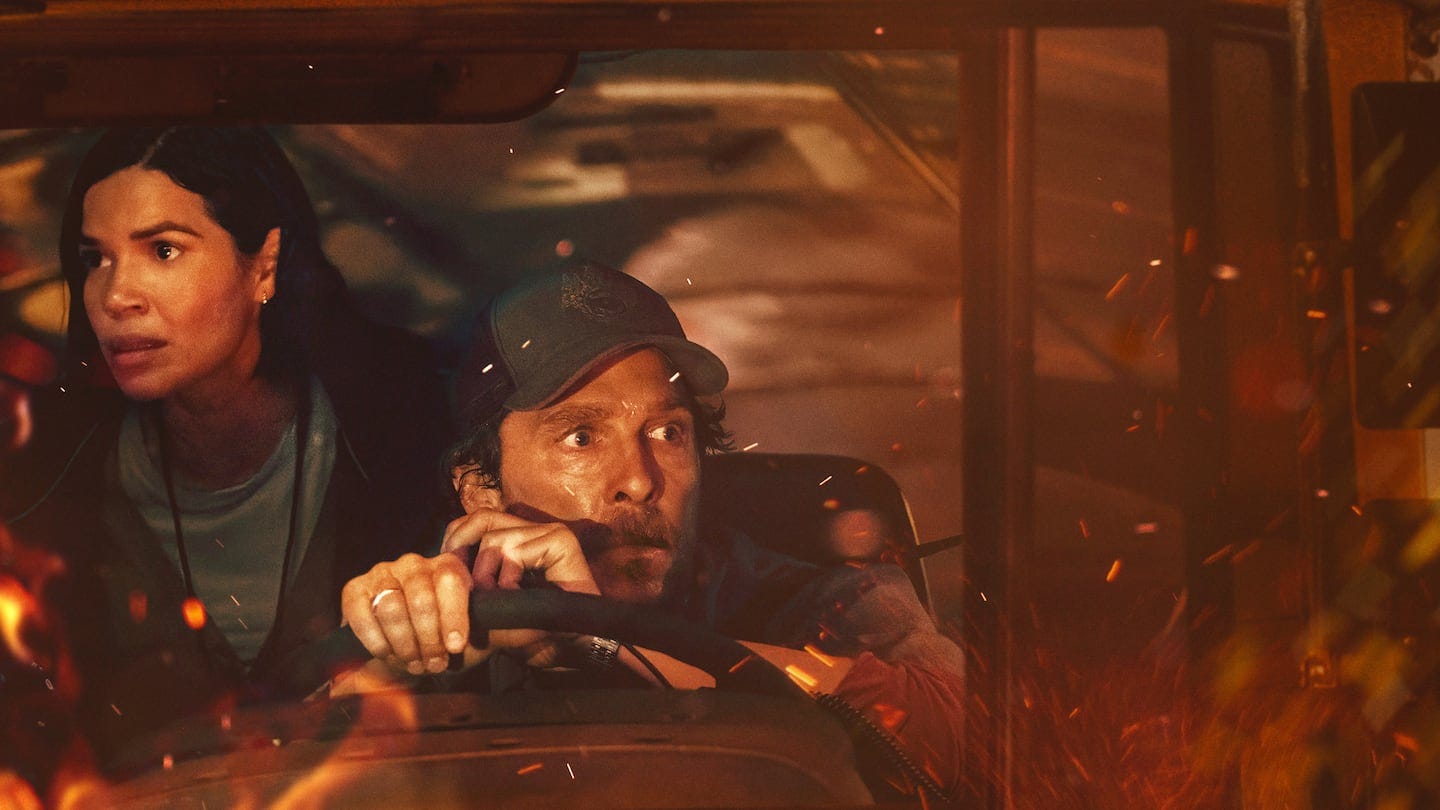In "The Lost Bus," a plea to show up for other people's children even when your own are in the fire
The climate/economic/masculinity/political polycrisis as art
Some days ago, I got to see the thrilling, suffocating, wake-up-calling, galvanizing movie The Lost Bus, at the Toronto Film Festival. Today it began streaming on Apple, and I could not recommend it harder. Consider your Friday night set. You’re welcome.
The movie stars the brilliant America Ferrera, an Ink O.G., and Matthew McConaughey, who I believe is…




